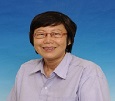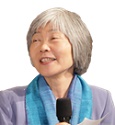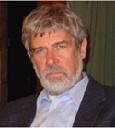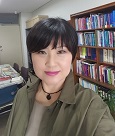Last updated: September 1st, 2017
September 1st, 2017
Dear participants and supporters of the JACET 56th International Convention (2017, Tokyo),
We are deeply grateful for your attending the JACET 56th International Convention (2017, Tokyo) at Aoyama Gakuin University, Tokyo, and would like to take this opportunity to thank you for your contribution to JACET.
We hope you enjoyed and benefited from this convention in many ways. In particular, we hope you were able to take away many new ideas and consider how you might apply the latest linguistic theories and teaching practices to the improvement of English language learning in your various contexts.
We aim to work toward this goal through English language education, which is becoming increasingly important as the world becomes more globally interconnected.
We hope that JACET, with the cooperation of other academic organizations, can contribute to English language education in order to promote peace and understanding among peoples around the world.
We look forward to seeing you in Sendai at the 57th JACET International Convention (Sendai, 2018). Best wishes for the continuing advance of your research and educational efforts through the JACET network.
Yours sincerely,
Hajime Terauchi PhD, President
The Japan Association of College English Teachers
(JACET)
大学英語教育学会第56回(2017年度)国際大会 ご参加の皆様 賛助会員の皆様
平素は本学会の活動にご協力いただき,ありがとうございます。
2017年8月29日より8月31日まで,東京都の青山学院大学にて開催いたしました大学英語教育学会第56回(2017年度)国際大会にご参加いただきありがとうございました。
皆様のご協力のおかげで,成功裏に終了することができました。改めまして御礼申し上げます。
グローバル化がより進んだこの時代に対応するべく,今後も皆様にご満足いただける大会を開催するよう企画運営をいたしますので,本学会の活動にご協力いただきますようお願い申し上げます。
2017年9月1日
一般社団法人大学英語教育学会
会長 寺内 一
JACET 56th International Convention (2017, Tokyo)
Dates: August 29th (Tue.) – 31st (Thu.), 2017
Venue: Aoyama Gakuin University
4-4-25, Shibuya, Shibuya-Ku, Tokyo, 150-8366, JAPAN
Theme:
English in a Globalized World: Exploring Lingua Franca Research and Pedagogy
グローバル化が進む世界における英語―世界共通語の教育と研究における現状と課題を探る
Abstract:
As we head toward the first quarter of the 21st century, the importance of communication at a global level is becoming increasingly evident. In practice, there is a great need for a lingua franca. Over the past two decades, there have been remarkable growth and development in ELF (English as a Lingua Franca) theory, research and practice. ELF has always been a means of communication in multilingual settings where English is regarded as a lingua franca among interlocutors from a wide range of linguistic and cultural backgrounds. As the extent and diversity of English use continue to rapidly grow, we need to reconsider ELF by situating it clearly against the backdrop of a globalized world with considerations for issues in applied linguistics and language teaching.
Many issues need to be addressed. In terms of pedagogical and assessment practices, what are the ramifications for language learning in Asia? How can we nurture learners to think of themselves as capable language users? What kinds of assessment and evaluation can be used? How do teacher training and development programs fit into a paradigm of English for a globalized world? More coherence is needed among theory, pedagogy and practice as well as more links among policy makers, schools, teachers and learners. JACET 56th International Convention (2017, Tokyo) seeks to explore such issues and challenges at stake in language education for the 21st century.
主旨:
21世紀の最初の四半世紀に際し、地球規模でのコミュニケーションの重要性は一層明確なものとなっている。実際、世界共通語の必要性は増大し、ELF(English as a Lingua Franca: 世界共通語としての英語)の理論、研究と実践は、過去20年に渡り目覚しい成長と発展を遂げている。英語がさまざまな言語的および文化的背景をもつ対話者間の世界共通語と見なされるような多言語環境において、ELFが常にコミュニケーションの手段となってきた。英語使用の範囲や多様性が急速に拡大していることから、グローバル化が進む世界を背景としてELFの概念を応用言語学や言語教育分野の問題として再検討することが必要である。
教育や評価の実施の点から見たアジアにおける言語学習に対する影響、学習者を有能なELF使用者であるとの自覚を育てる方法、評価方法やアセスメントの選定、教員研修のプログラムとグローバル化に対応する英語のパラダイムとの適合性など数多くの課題を扱わなければならない。政策立案者、学校、教師、学習者相互の一層のつながりのみならず、理論、教育、実践相互の一層の一貫性が必要となっている。大学英語教育学会第56回(2017年度)国際大会では21世紀の言語教育において重要な課題となっているこれらの諸問題を探求する。
Cosponsored by the Aoyama Gakuin Research Center for English Language Teaching
Supported by The Ministry of Education, Culture, Sports, Science and Technology; Tokyo Prefectural Board of Education; Aoyama Gakuin University
Plenary Lecture:
1. Univ. Prof. Dr. Barbara Seidlhofer (University of Vienna)
English as a Lingua Franca: Why is it so controversial?
As networks of digital communication have vastly extended over recent years and changed all our lives, whether we like it or not, so the use of English has spread to become a global lingual franca as the means for this communication. This is not a matter of dispute. What has been, and still is, a matter of dispute, however, among sociolinguists and language teaching professionals alike is whether this phenomenon warrants serious study. The study of English as a lingua franca has given rise to a good deal of controversy, and objections have been raised both about its sociolinguistic validity in theory and about its pedagogic relevance in practice. In this talk I will consider these objections, and suggest reasons why reactions to the study of ELF communication have so often been dismissive, not to say hostile. I will then go on to argue that what makes ELF study so controversial is that it challenges received ideas which are no longer in accord with the changed realities of the contemporary globalised world, so that what makes it controversial is precisely what justifies it as a significant area of enquiry. An understanding of the nature of ELF communication necessarily calls into question taken-for-granted assumptions that have hitherto informed how English has been described and taught. These assumptions are deep-rooted, often sustained by tradition and vested interests, and they cannot simply be ignored. ELF study is controversial because it undermines a sense of security in established ideas and practices. So I will also argue that it is important to consider how traditional assumptions can be acknowledged and some continuity retained in ELF study, particularly when following its pedagogic implications through to practical implementation.
Barbara Seidlhofer, Professor of English and Applied Linguistics at the University of Vienna, is the founding director of the Vienna-Oxford International Corpus of English (VOICE) and founding editor of the Journal of English as a Lingua Franca. Her research and teaching focus on the sociolinguistics of ELF, intercultural communication and multilingualism and their implications for teacher education.
2. Dr. Phyllis Ghim-Lian Chew (Nanyang Technological University)
Lingua Francas and World Orders: The Place of English in a Globalized World
This paper offers an alternative paradigm in understanding and appreciating English as a Lingua Franca (ELF) in the wake of globalization and its accompanying shifting priorities in many dimensions of modern life, such as politics, economics, world orders, and last but not least, the recent emergence of English as the dominant lingua franca in the world.
A model is created which argues that history is a theatre for the realization of lingua francas, be it tribal, city, national or global. The model shows the present as derived from the past and as a bearer of future possibilities. ELFs which arrive on the scene later are laid layer by layer on earlier ones. The model shows how languages evolve either vertically through the forces of evolution or horizontally through social contact. Drawn from tentative laws that are generalizations of complexity principles, the model assumes 1) that language is a precondition for any kind of social organization; 2) that there are no pure languages; 3) that motion is ceaseless; 4) that the cosmos and human life are integrally relation; 5) that orderliness exists; and finally, 6) that the inordinate capacity of self-organization is present in nature.
This paper will also engage with some of the current theoretical debates in ELF and includes, as a means of fleshing out the model, sociolinguistic case study references to countries of interest. .
Dr Phyllis Ghim-Lian Chew is a professor at the National Institute of Education, Nanyang Technological University. She sits on the international advisory boards of several international refereed journals as well as international handbook series and was Fulbright Visiting Professor at Harvard University in 2010 as well as Leverhulme Visiting Professor to the UK in 2012
Convention Symposium 1:
Exploring English as a lingua franca and its educational significance
This symposium, in line with the Convention theme, discusses English as a lingua franca (ELF) in this globalized world from mainly two perspectives: research and its pedagogic implications. Globalization has accelerated the use of English as a lingua franca among people from different linguacultural backgrounds. This increasing use of English as a lingua franca has simultaneously given great impetus, in academic settings, to the introduction of English education at primary level as well as English-medium instruction (EMI) at secondary and tertiary levels in various parts of the world, Japan being no exception. In the business sector, English is becoming a de facto lingua franca, particularly in multinational companies, and more and more companies are designating English as their corporate language. However, even under these circumstances, the nature of the ‘E’ in both academic and business settings is usually not explicitly discussed but is often just assumed that it is the E of native speakers of English (NSEs), in particular, often either American or British. This is hugely contradictory from the reality of how English is actually used as a lingua franca. There is thus a great need for investigating what is actually happening in the use of ELF in these situations. The symposium will introduce some of the major ELF-related research projects conducted so far in both Europe and other parts of the world, notably, Asia, and explore the possibility of ELF- informed language pedagogy taking into account the results of the existing research.
Panelists:
Univ. Prof. Dr. Barbara Seidlhofer (University of Vienna)
Barbara Seidlhofer, Professor of English and Applied Linguistics at the University of Vienna, is the founding director of the Vienna-Oxford International Corpus of English (VOICE) and founding editor of the Journal of English as a Lingua Franca. Her research and teaching focus on the sociolinguistics of ELF, intercultural communication and multilingualism and their implications for teacher education.
Prof. Dr. Nobuyuki Hino (Osaka University)
Nobuyuki Hino (Ph.D.) is Professor, Graduate School of Language and Culture, Osaka University. He is a former director of the International Association for World Englishes, and currently serves on the editorial advisory board for the journal World Englishes (Wiley) as well as on the editorial board for the book series Intercultural Communication and Language Education (Springer).
Prof. Dr. Kumiko Murata (Waseda University)
Kumiko Murata is Professor of English and Applied Linguistics at the School of Education and the Graduate School of Education, Waseda University. Her research interests, apart from ELF, include conversation and discourse analyses, pragmatics, intercultural communication and language teaching. Her most recent edited book is Exploring ELF in Japanese Academic and Business Contexts (2016, Routledge).
Discussant:
Hon. Prof. Dr. Henry Widdowson
Henry Widdowson is Professor Emeritus, University of London, and Honorary Professor at the University of Vienna. He was a founding editor of the journal Applied Linguistics and for thirty years the applied linguistics adviser to Oxford University Press. A central interest in his work has been the relationship between linguistic description and language pedagogy.
Moderator: Prof. Dr. Kumiko Murata
Convention Symposium 2:
ELF in Asia: The place of ELT and teacher training.
With an increase in international mobility, the role of lingua franca is becoming more and more important. Despite various views whether or not English should be a lingua franca in Asia, Asia has the largest population of the users of English as a second or a foreign language. In addition, it is the most widely taught language in the region.
The symposium focuses on the role of English as a lingua franca in Asia focusing on cases from Korea, Singapore and Japan. The panelists present cases from each country in order to illustrate the place of English in their countries and sociopolitical aspects surrounding the language in the past, the present and the future.
After the cases have been presented, the panelists will discuss the cases in relation to the role of English language teaching and teacher training in the region in the future including; 1) if English keeps its status as a lingua franca in Asia or it will be replaced by other languages; 2) what will be considered as a model for the learners; and 3) what will be the role of teacher-training in Asia.
The presenters hope to identify key areas in which ELT profession in Asia needs to pay attention for the next decade at the conclusion of the symposium.
Panelists:
Dr. Phyllis Ghim-Lian Chew (Nanyang Technological University)
Dr Phyllis Ghim-Lian Chew is a professor at the National Institute of Education, Nanyang Technological University. She sits on the international advisory boards of several international refereed journals as well as international handbook series and was Fulbright Visiting Professor at Harvard University in 2010 as well as Leverhulme Visiting Professor to the UK in 2012
Prof. Dr. Masaki Oda (Tamagawa University)
Masaki Oda is Professor of Applied Linguistics and Director of Center for English as a Lingua Franca (CELF) at Tamagawa University. His research interests include sociopolitical aspects of language teaching and teacher training. He is Director of Academic Exchanges of JACET and Vice President for membership of AsiaTEFL.
Dr. Joo-Kyung Park (Honam University)
Dr. Joo-Kyung Park is a professor at the Dept. of English Language and Literature, Honam University in Korea. She serves as Immediate Past President of the Applied Linguistics Association of Korea (ALAK) and Conference Executive Director of Asia TEFL. Her research interests include teacher education, speech/pronunciation, critical pedagogy, World Englishes, and intercultural communication. Email: english58@hanmail.net
Moderator: Prof. Dr. Masaki Oda









